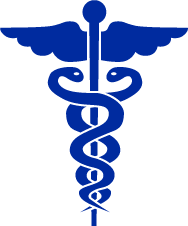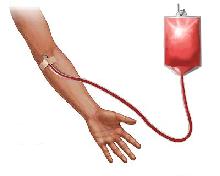
Every day, I encounter some dilemma of medical ethics.
Usually, it's a small thing: a patient demanding an inappropriate medicine; confidentiality issues involving sexually active teenagers; end-of-life care for elderly, demented patients.
Occasionally, I have been intimately involved in gut-wrenching, life-altering family dramas: removing ventilator support from a beloved mother who barely survived her own suicide attempt; administering chemically-castrating medication to a sweet (but potentially pedophilic) retarded teenager at his mother's request; whether to perform heroic (but futile) resuscitation to an essentially brain-dead child whose mother cannot let her go.
Nationally, medical ethics are all over the front page of the newspaper: Terry Schiavo, stem cells, organ transplantation, universal healthcare, cloning, physician-assisted suicide, emergency contraception . . . the list goes on.
When I first delved into medical ethics, I found it very frustrating that there did no
 t seem to be a right answer. And in fact, there rarely is such clarity. Rather, in a true ethical dilemma, there are two "true"ethical tenets competing against each other: one valid tenet, "right" within its own sphere, infringes directly upon another "right" tenet when it is fully exercised. Abortion is the classic example: who can deny that a woman should have the right to control her own body? But conversely, who can argue that killing a fetus is a moral act? One trumpets choice, the other reveres life. Both are right; both have limits.
t seem to be a right answer. And in fact, there rarely is such clarity. Rather, in a true ethical dilemma, there are two "true"ethical tenets competing against each other: one valid tenet, "right" within its own sphere, infringes directly upon another "right" tenet when it is fully exercised. Abortion is the classic example: who can deny that a woman should have the right to control her own body? But conversely, who can argue that killing a fetus is a moral act? One trumpets choice, the other reveres life. Both are right; both have limits.At some point in your life, devoted reader, you will confront your own ethical dilemma involving your (or a loved one's) health care. A framework to consider such dilemmas could be helpful. Here's a primer on fundamental Western medical ethics, founded on four basic tenets:
1) Autonomy: individuals have an inherent right to make their own choices in regard to their healthcare.
2) Beneficence: healthcare providers are bound to do good, or what is in the patient's best interests.
3) Non-maleficence: healthcare providers are bound to do no harm, or to refrain from what would be against the patient's interest.
4) Justice: a society must distribute healthcare goods and services in a fair and equitable manner.
Here's a brief case to cut your teeth on:
************************************
Transfusion Error
A 70 year-old woman is rushed to the hospital in shock and semi-comatose. She is found to be hemorrhaging internally due to an unintentional overdose in blood thinners. She survives after being resuscitated with fluids and a number of blood products.

When she is removed from a ventilator a few days later, she asks a nurse what happened. The nurse responds that she almost bled to death, but that she's okay now. The patient states, "Well, at least they didn't give me any blood." The nurse cautiously asks, "What do you believe about blood products?" The patient responds, "Oh, honey. People that get transfusions go to hell and suffer for eternity. I'm glad that's not me."
The nurse leaves the room and calls the physician. Should she tell the patient the truth, even if it were to cause her unbearable emotional harm?
********************************************
This is a classic confrontation between Autonomy and Non-Maleficence. Which is paramount--our duty to respect her autonomy and tell her the truth? Or our duty to respect her well-being and avoid undue harm?
Theories are great, but you're a man or woman of action. Something must be done. What would you do? How do you justify your action? Please post a comment with your opinion.
(Remember, the good thing about medical ethics is there's no right answer--except for mine, of course.)
4 comments:
Mark,
Thanks for the blog. Very interesting. In the case study, I think the physician should tell the patient the truth about what was done to her, why it was done, and apologize. I hope there was no advanced directive on the subject that was ignored. This is a tough choice and it might in fact do emotional harm to the patient, but witholding the truth now seems like it could neccesitate further coverup in the future, and also present the possibility that she would find out in the future, in which case the emotional harm would be multiplied.
I guess this decision might depend a bit on the mental status of the patient. If she is not demented, I think as a religious person she deserves respect for her beliefs, which means respecting the seriousness of what she views as a transgression or sin. Keeping the truth from her seems patronizing and demaning to her belief system. I don't know about any of this. What is the grand master of ethics' opinion?
Well, it seems to me that telling her would do more harm or potential harm than not telling her. Since one knows that though she believes sincerely that she will go to hell, you as a Dr. knows that is not true. Therefore, truth wins out over a belief that you know is not founded in truth.
Now, if she asked a direct question, my thought would be not to lie to her but to tell her the truth. Don't ask, don't tell seems to be the right course of action.
That's an easy one, Dr. Come up with a tough one.
Dad
Personnally I think she should be told. Yes she will be upset, but I can't imagine that she wouldn't find out anyway. Then she would be even more upset... and get a lawyer. You know what that means.
The most sensitive approach, I think, would be to gently grasp her shoulders, look her directly in the eye and say in a kind, caring voice, "Ma'am, by saving your life via the transfusion we have inadverntantly consigned your eternal soul to the fiery pit of fiends. We apologize for the inconvenience."
She'd probably drop dead on the spot; problem solved!
Ethics are indeed a slippery slope, which is why I try to avoid negotiating them altogether. = )
Seriously though, I would have to go for the "honesty as the best policy" option, or in this case the “honesty as the policy that is the least likely to get our collective hides sued for malpractice” option.
It’s a sad state of affairs when concerns over litigation supercedes one’s professional ethics – not that I need or even have the right to grouse over this, being one of the lucky folks who don’t have to shell out yea bucks for malpractice insurance premiums. But then I also wouldn’t treat anyone insane enough to ask me for medical advice, at least not for anything more serious than a hangnail!
I digress, but let’s face it – even if the patient in question attempted to sue you for saving her life with what according to her (IMHO) wacky belief set is an unethical procedure, but before you were informed of her beliefs/desires (*clearing throat for emphasis here*), she would not be likely to win the case -- especially when one remembers that physicians are bound by the very ethical code which our Doc Mark outlined in his thoughtful blog post. It has something to do with some dead Greek guy named Hippocrates if I’m not mistaken, or was it Genghis Khan…? (I think I’m getting my bad 1980’s teen comedies mixed up here.)
Finally, consider that if the medical professionals had actually withheld treatment on the basis of this patient’s beliefs and she’d died, her surviving relatives still could choose to sue for negligence (again, their chances for winning would arguably be pretty slim, but there’s always the inconvenience factor).
All things considered, I often wonder why medical professionals continue to show up to work with such a parade-of-the-horribles waiting for them each and every day. If I had to put up with such ethical questions and potential liability on a minute-to-minute basis I’d very likely freeze up and be afraid to make any decisions at all! I guess we should all be glad that physicians are made of far more resilient stuff than I – perhaps because of that “initiation by putting to death” routine which you all experience during your residency training! ;-)
Keep up the great work, Mark -- I really do enjoy reading about your experiences! ~W
Post a Comment